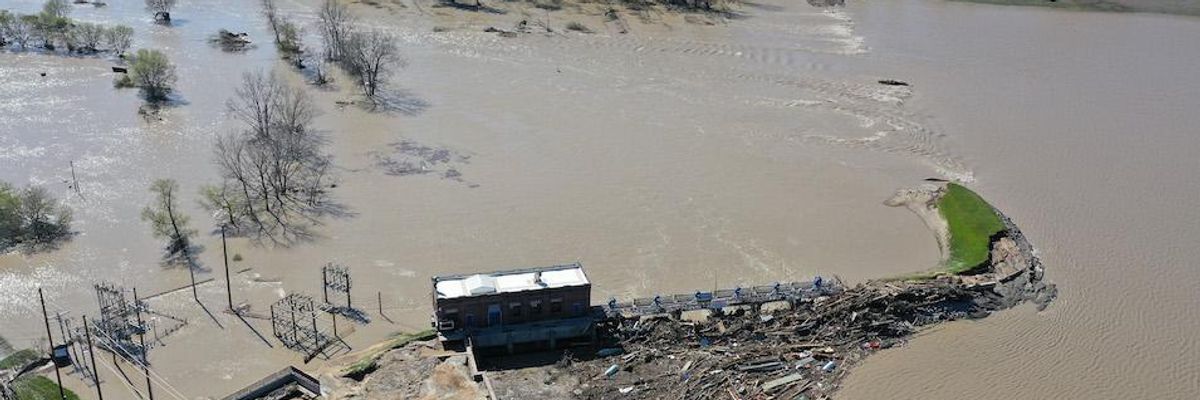Advocacy group Beyond Nuclear on Friday called on nuclear power plants to invest in mitigation strategies for potential disasters after catastrophic flooding in Michigan over the past week threatened a nuclear reactor at Dow Chemical's Midland County facility.
"The prospect of a nuclear disaster prompting a mass evacuation during a viral pandemic reinforces the need for an energy policy focused on safe, clean and affordable renewable energy," Beyond Nuclear Reactor Oversight Project director Paul Gunter said in a statement.
As Common Dreams reported, dam failures along the Tittabawassee River led to water pouring toward Midland and into the Dow Chemical plant located with the city. Plant officials notified the Nuclear Regulatory Commission Wednesday night of an "unusual event" at the site, though the reactor is not understood to have been damaged at this time.
The combination of the flood, threat to the nuclear reactor, and the ongoing coronavirus outbreak, said Gunter, makes clear state, local, and federal officials need better strategies to handle threats that may be compounded in an age of climate crisis and pandemic.
"The Michigan flooding has forced the relocation of thousands of citizens from their stay-at-home shelters into the social distancing challenges of mass shelters," said Gunter. "Evacuating tens of thousands from a radioactive cloud to mass shelters, as is presently planned during a nuclear emergency, raises difficult if not impossible choices under pandemic conditions."
Beyond Nuclear listed two actions that regulators around the country should take immediately:
- NRC and FEMA must conduct a "Disaster Initiated Report," as mandated by the MOU, on the adequacy of offsite radiological emergency response plans during the pandemic, and;
- Federal and state response plans need to be bolstered by the immediate pre-distribution of potassium iodide (KI) tablets by direct delivery to every resident within the ten-mile radius of U.S. nuclear power stations, now, before any accident occurs. This is in accordance with disaster medicine expert recommendations including from the American Thyroid Association (ATA).
Ultimately, Gunter said, the real goal should be to release the nation from the threat of nuclear meltdown by bringing a rapid end to the atomic energy industry once and for all.
"It's time to remove the added and unnecessary danger presented by the 95 nuclear reactors still operating in the US today, and transition to a rapid phaseout before a nuclear emergency during a pandemic becomes a nightmarish reality," said Gunter.

